Pick-your-own apples in short supply following late May frost
| Published: 08-16-2023 9:58 PM |
PLAINFIELD — In 2001, hail battered the apple crop in Paul Franklin’s orchard at Riverview Farm.
With his own apples bruised beyond repair, he headed to Poverty Lane Orchards in Lebanon, where owner Steve Wood filled Franklin’s boxes with fruit from his own trees to sell at Riverview’s farmstand.
“All the orchards around here, we get along,” Franklin said. “We talk to each other and help each other out.”
But following this year’s historic late spring freeze, there aren’t any backup apples to be picked at Poverty Lane. There are few apples in the Upper Valley at all, and the same will be true throughout most of the Twin States this fall.
April in New Hampshire was one of the warmest currently documented, and the second-warmest in Vermont. But on the night of May 17, a different kind of record was shattered.
A federal weather station at the Lebanon Municipal Airport clocked in that night at 23 degrees, an all-time low not just for that date but for any day within the month of May in the last half-century.
Orchard owners have been holding their breath since, as the full result of the damage from that night is revealed over the rest of the growing season.
In Vermont, a survey by the state’s agency of agriculture found that the financial losses from the decimated apple crops are upward of $3.6 million. The freeze destroyed nearly 75% of New Hampshire’s apple crop, according to Shawn Jasper, the state’s commissioner of agriculture.
Article continues after...
Yesterday's Most Read Articles
 Homeless Upper Valley couple faces ‘a very tough situation’
Homeless Upper Valley couple faces ‘a very tough situation’
 Lebanon’s Jewell back from auto accident, more aware of ‘drowsy driving’ dangers
Lebanon’s Jewell back from auto accident, more aware of ‘drowsy driving’ dangers
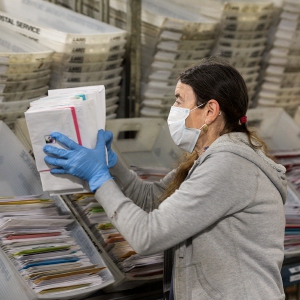 Plan on track to ship Upper Valley mail to Connecticut for sorting
Plan on track to ship Upper Valley mail to Connecticut for sorting
 West Lebanon crash
West Lebanon crash
 Crane crash on Interstate 89
Crane crash on Interstate 89
For eight hours the night of the freeze, the mercury at Riverview dipped below freezing, Franklin said. The orchard lost the majority of its pick-your-own apple crop, the staple of its fall revenue stream.
“But we’ve diversified over the decades,” Franklin said. “We have an excellent blueberry crop, and the raspberries haven’t started yet but they’re looking good.” Franklin is putting the finishing touches on Riverview’s corn maze this week.
“We have things for people to do,” he said. “But it certainly won’t be the same experience as picking in the orchard.”
With no options from more immediate neighbors, Franklin said he’ll be buying in apples from Massachusetts and southern New Hampshire to sell at Riverview’s farmstand.
Crop insurance for his own withered apples hasn’t come in yet.
At around 10 cents on the dollar compared to what Riverview’s normal income would be from apples, the insurance rate is “lower than I expected,” Franklin said. “But it’s going to be enough to get us through.”
In the meantime, Riverview will try to maximize profits from the other crops on the farm and cut costs where it can. There won’t be any new farm equipment this year, Franklin said, and non-essential maintenance will be kicked down the road.
At Poverty Lane, the apples used to make hard cider, the orchard’s primary wholesale crop, started blossoming after the freeze. Ultimately, they did OK, owner Steve Wood said.
But the apple trees that were fruiting by the time of the cold shock were quickly crushed.
“It was below freezing at 11 p.m., and it was 25 degrees at 1:30, 23 at 4:30, 21 at 6:30,” Wood said, recalling temperature progressions from months ago.
“You don’t get to do to that to a 4-millimeter piece of growing flesh that’s suffused with water,” he said. “We lost every single eating apple we grow.”
There were a few exceptions to May’s cultivar carnage. Higher elevation saved large portions of the apple crop at Patch Orchards, Barbara Patch said. Cold air sinks, and at 1,400 feet above sea level, Patch Orchard’s topography offered a measure of protection.
“There are spots in our orchard that don’t have apples, but they’re lower,” Patch said. Her farm will be among the few across the state open for pick-your-own this fall.
At Sweetland Farm, in Norwich, owner Norah Lake was able to pad her fruit CSA with summer varieties of apples, saved by the timing of the bloom like Wood’s cider crop. But the Lido, Yellow Transparent and Summer Rambo varieties were only enough to get Sweetland to 15% of its typical orchard production.
“I would say that prior to this freeze, we were thinking pretty seriously about replacing the summer varieties with more traditional fall varieties, but this might tip us away from that,” Lake said. “As with the whole farm, where diversity is our saving grace, we’re seeing that in the orchard as well.”
The unfolding revelations of the late May frost come on top of broad crop losses after flooding in Vermont in July and subsequent heavy rainfall through the summer across both states.
Spared significant damage from the deluge, Lake said she’s been careful about complaining. But in her communications with her CSA customers, she doesn’t shy away from the realities of farming today.
“Climate change is hitting us from all angles,” Lake said.
Frances Mize is a Report for America corps member. She can be reached at fmize@vnews.com or 603-727-3242.

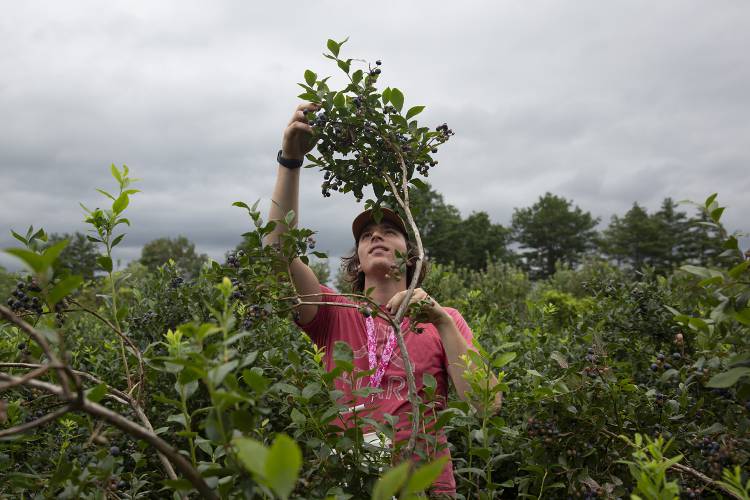

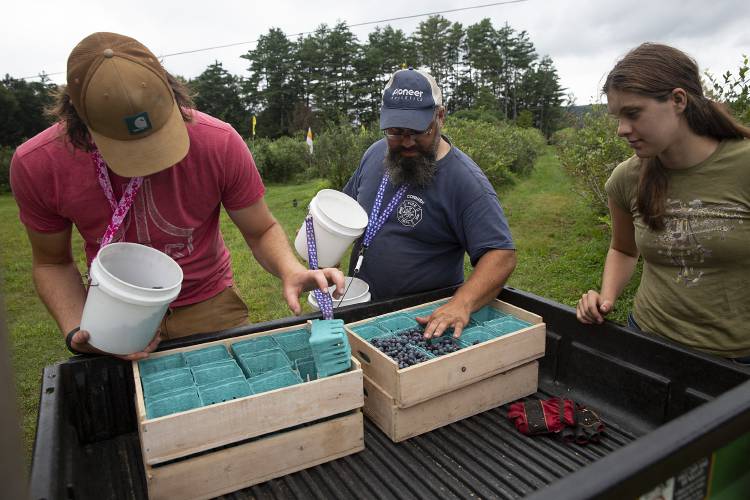
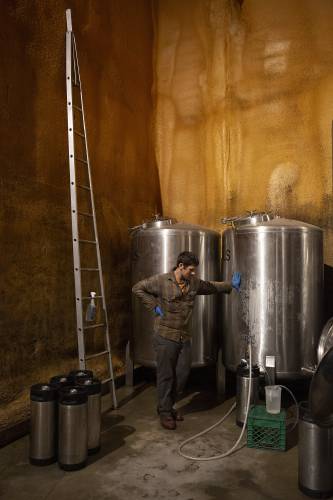
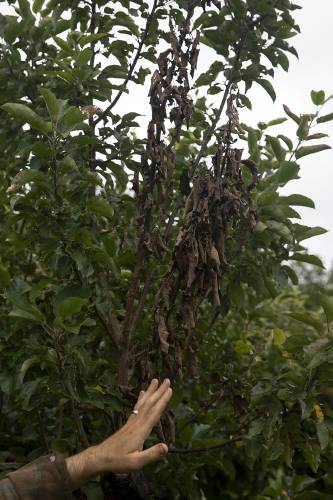
 Kenyon: Constitutional rights should trump Dartmouth’s private interests
Kenyon: Constitutional rights should trump Dartmouth’s private interests
